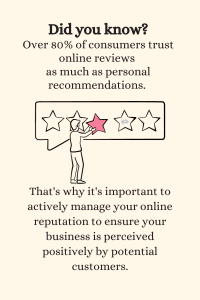There comes a time in the life of every entrepreneur when your business is no longer enjoyable. If you are a serial entrepreneur, growing businesses only to sell them for profit is a way of life. No matter what your reason is, selling your business can be overwhelming to a first-timer. In this article, we will take a look at a few points you must consider while selling your business.
Setting the right valuation
Arriving at the right valuation for your business can be quite tricky. This is especially true since revenues and profits do not always reveal the complete picture about a business. A WordPress blog making $ 5000 profit each month off ad revenue may demand the same valuation as a SaaS business making the same kind of monthly profit
However, the assets owned by the business are completely different. In this example, the SaaS business may have proprietary software that could have taken several thousand dollars to build. The value of this asset must be accounted for while valuing the property. Also, a SaaS model brings recurring income to the business and is a lot more sustainable than a blog making money off ads. It is important to account for the value of these assets while arriving at the right selling price. You may want to hire a professional business broker, accountant, or financier to help you in arriving at the right valuation.
Giving the buyer a reason to buy
Building the best business in town is not always the ideal strategy if you are looking to eventually sell your equity. A prospective buyer not only looks at your financial metrics while evaluating your business, but is also interested to know your customer acquisition and retention strategies. They do this because fixing such gaps in your system could help the buyer turn your business around and make a profit. In other words, having gaps in your execution is not a bad thing when you are looking to sell your business. Position your business as the second or third best in your industry for maximum leverage during the selling process.
Find the Right Platform to Sell
Finding the right platform to sell your business is as important as setting the right valuation. There are two reasons to do this. Firstly, you need to be seen among industry insiders who are knowledgeable about your business. A relative newbie to your industry may not really understand the significance of your product or may not have sufficient incentive to bid high. A buyer who already has significant assets in your industry may be capable of driving traffic from these assets to your property, and would therefore be ready to bid high on your property. The second reason you must find the right platform is because the sale price of your website in an auction model is determined by the quality of your peers. Low interest among bidders disincentivizes an interested buyer from bidding high.
A site like Flippa, for instance, is popular among sellers looking to make a quick buck. Consequently, even a modestly legitimate business is likely to enjoy good bids. Similarly, if you own an eCommerce store, you must look at putting your site for sale on a platform like Shopify Exchange – this attracts fellow eCommerce entrepreneurs who are more likely to understand your business.
Craft a post-exit strategy
What is your role in the strategy and operations of your business after it has been sold? Do you intend to serve as a mentor to the buyer? Will you still own equity and a board position? The sale price should reflect such demands from the buyer. In addition to this, you must also take other factors like the insistence on a non-compete clause in the sales agreement or the offer of equity in the parent organization in lieu of cash into account. There is an opportunity cost with each of these demands and the sale price must reflect these factors.
Selling a business is never going to be easy. There is always a buyers’ or sellers’ regret at the end of a transaction. The pointers above should help you to arrive at the most scientifically accurate valuation for your business and should help ensure a smooth selling process.
Business & Finance Articles on Business 2 Community(94)
Report Post






